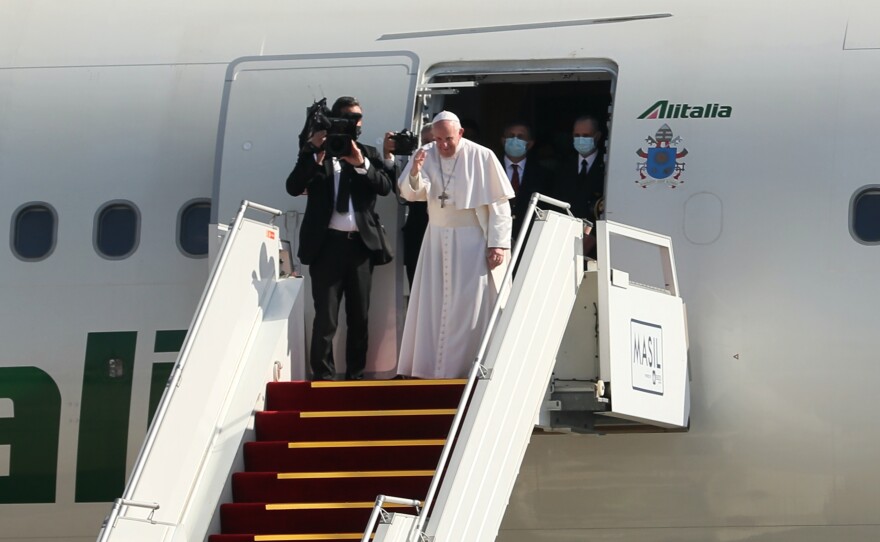On his flight home from Iraq, Pope Francis admitted he's happy to have left the Vatican for several days after feeling "imprisoned" during COVID-19 lockdowns. The pope also said he's not afraid of critics that don't support his decision to open Christian-Muslim dialogue.
Before embarking on his journey, Francis was warned about contracting the coronavirus or contributing to the spread, especially with cases on the rise in Iraq. To mitigate these concerns, the pope and his travel entourage were vaccinated before making the trip.
And although the Vatican had worked with local organizers to ensure there would be appropriate social distancing and consistent masking, there were multiple instances were crowds gathered a little too close and where masks at times were scarce, according to the National Catholic Reporter.
Before leaving for Iraq, the 84-year-old pope had been cooped up in the Vatican for 15 months. "After these months in prison, because I truly felt in prison, this [trip] for me is like coming back to life," Francis said.
While in Iraq, the pope visited six cities and promoted Christian-Muslim dialogue while encouraging the nation's Christian community. On Saturday, he met with Grand Ayatollah Ali al-Sistani, Iraq's top Shiite Muslim cleric, drawing praise from President Biden.
"To see Pope Francis visit ancient religious sites, including the biblical birthplace of Abraham, spend time with Grand Ayatollah Ali al-Sistani in Najaf, and offer prayers in Mosul — a city that only a few years ago endured the depravity and intolerance of a group like ISIS — is a symbol of hope for the entire world," Biden said in a statement.
While the trip was seen as inspirational to some, others feel the pope's attempt to bridge Christian-Muslim relations is a betrayal of the faith. But Francis remains steadfast in his decision, Crux reported. He believes it is important to be connected with other religions and their followers.
"There are some critics who say the pope is not courageous but unconscious, that he's taking steps against Catholic doctrine, that he's one step from heresy," the Pope said. "These are risks, but these decisions are taken always in prayer, in dialogue, asking for advice."
Copyright 2021 NPR. To see more, visit https://www.npr.org.






